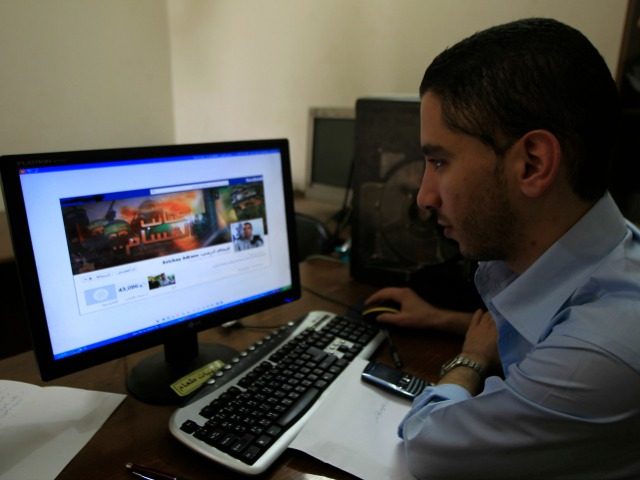JAFFA, Israel – With social media becoming a growing source of political dissent, Arab law enforcement agencies have started targeting high-profile users whose posts have gone viral.
Palestinian Authority forces have arrested Amir Sbeitan, a young Palestinian man who filmed himself interviewing his 80-year-old grandmother about President Mahmoud Abbas’ controversial decision to attend former Israeli President Shimon Peres’ funeral last month.
In a provincial dialect, the old woman claimed that Israelis never attend Palestinians’ funerals.
“It’s very cheap on Abbas’ behalf to attend the funeral,” she said in the video that quickly gained hundreds of thousands of views. “It’s because they’re cowards, they have no honor. When did a Jew ever attend our funerals? Shame on the leadership.”
Sbeitan said that over the weekend he had undergone a 12-hour interrogation by the General Intelligence in Ramallah, and was asked whether he initiated the video or was persuaded to produce it, directly or indirectly, by Mohammed Dahlan, Abbas’ nemesis in Fatah.
Insisting that he hadn’t been abused, Sbeitan said that “the fact that such a long interrogation takes place is a violation of the freedom of thought and expression.”
Meanwhile, Egyptian forces reportedly arrested Mustafa Abdelazim, who filmed himself complaining about the government while driving his minibus.
“It’s such a shame what they’re doing to Egypt,” he said. “It has 20 ministers, a defense establishment and an army, is what’s happening to it reasonable? How come we had everything before the elections, and now there’s even a shortage of sugar.”
“On TV they make us feel like we live in Vienna, but as soon as you go out to the street we realize that we are more like Somalia,” he went on to say. “We have plenty of formal banquets, but people can’t even afford rice. Education is in a terrible shape. They tell us stories about national projects. It’ s the same Egypt that used to give loans to Great Britain, that used to lead the Arab world. Today the Gulf countries humiliate us.”
Abdelazim’s arrest sparked a heated debate on Egypt’s social and mainstream media, with some pro-government speakers saying that he wasn’t an ordinary man on the street, but a member of an underground ring operated by the Muslim Brotherhood in a bid to take over the social discourse.
However, a government spokesperson denied he had been arrested. “[Abdelazim] was called in for a chat to discuss national issues and to have a chance to be exposed to the truth about Egypt.” The spokesperson also said the government never claimed he was a Muslim Brotherhood agent.

COMMENTS
Please let us know if you're having issues with commenting.